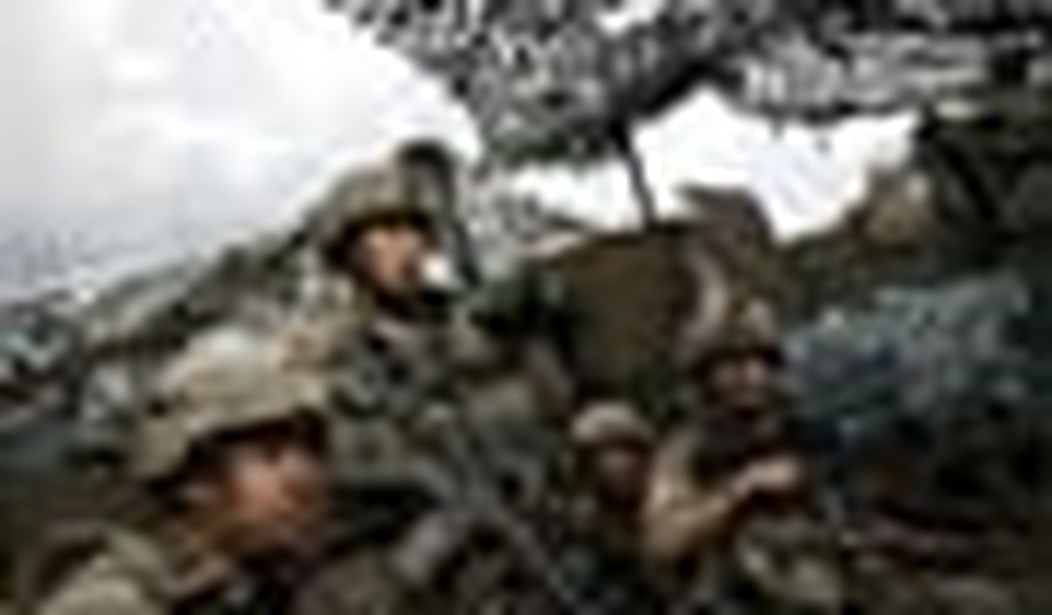What does a Sebastian Junger documentary and the Department of Justice have to do with each other? A lot, especially when the DOJ thinks computers are the answer to protecting military voting rights. Before the next election, every attorney responsible for protecting military voting rights should have to watch this Grand Jury Prize winner at Sundance.
During the 2010 election, the Department of Justice was responsible for enforcing the MOVE Act of 2009. The MOVE Act was designed to fix the problems with military voting that had plagued American elections as far back as the Revolutionary War. Servicemembers were simply disenfranchised because they were not sent a ballot early enough for it to be cast and mailed back in the United States by election day. Exacerbating the problem was a Department of Justice that implemented a Keystone Kops enforcement policy in 2008 by deploying inept investigative techniques wholly incapable protecting military voting rights.
The MOVE Act of 2009 mandated that ballots be mailed at least 45 days before an election. But a law is only as good as the people enforcing it.
Instead of strictly enforcing the law, the Department of Justice failed to enforce military voting rights quickly and effectively throughout the fall of 2010. Instead of taking the new law seriously, DOJ officials telegraphed to state election officials they didn’t want to sue any of them for noncompliance. Instead of quickly and aggressively litigating against states who failed to mail ballots 45 days in advance, DOJ cut deals with states like Wisconsin that required ballots only be mailed 32 days before the election. Instead of monitoring compliance with the law, DOJ needed Pajamas Media to break the news three weeks after the deadline that Illinois failed to mail military ballots overseas.
Perhaps worst of all, instead of following the letter of the law, the DOJ allowed states to rely on computer and fax technology to get ballots overseas. According to sources inside the DOJ, if ballots were available online or by email, DOJ let states break the law and send them later than 45 days before the election.
The belief that technology can solve the overseas voting problem is an eighty percent solution for people who give one hundred percent — and sometimes more.
Recently, the Voting Section Chief authorized a ridiculous field trip for the entire voting section, including secretaries, to take time off from work to watch courtroom arguments in a voting case that none of them worked on. News accounts reported that over half the Voting Section took off to the hearing.
Before the 2012 election, these same DOJ employees should instead go to places similar to the Korengal Outpost portrayed in Junger’s compelling documentary Restrepo. Better yet, they should spend some time in a place like Outpost Restrepo and see how preposterous their technological solutions are for military voting protections.
If they won’t do that, then the next Voting Section field trip should be to a theatre to watch Restrepo.
Restrepo catalogs the valor and ingenuity of the American infantry soldier in Afghanistan. After a fierce firefight that costs the life of platoon medic Private Juan Restrepo, fifteen Army soldiers seize the high outcrop from whence the Taliban unleashed their ambush. Under starlight, they dig in and stake claim to this high perch in no-man’s land — from whence they rain fire down on Islamic militants for the next year.
No computers. No fax machines. No time to relax at O.P. Restrepo. Firefights are almost a daily event. Here, ballots come by mail, if they come at all. And rough men standing ready in the night occupy so many other O.P. Restrepos. Their dust-choked and primitive existence renders pathetic and naïve their government’s reliance on computer technology to help them vote.
So when DOJ officials try to explain their half-hearted efforts to protect military voters, Congressmen should ask their witnesses “Have you seen Restrepo?” When you next hear someone suggest that an internet connection is the key to helping the military voter, ask, “Have you seen Restrepo?”
To the rest of America, if you want to experience the stark conditions and continuous dangers experienced by the heroes risking their lives for us, see Restrepo. You won’t tolerate the military voting mess of 2008 and 2010 ever again.










Join the conversation as a VIP Member